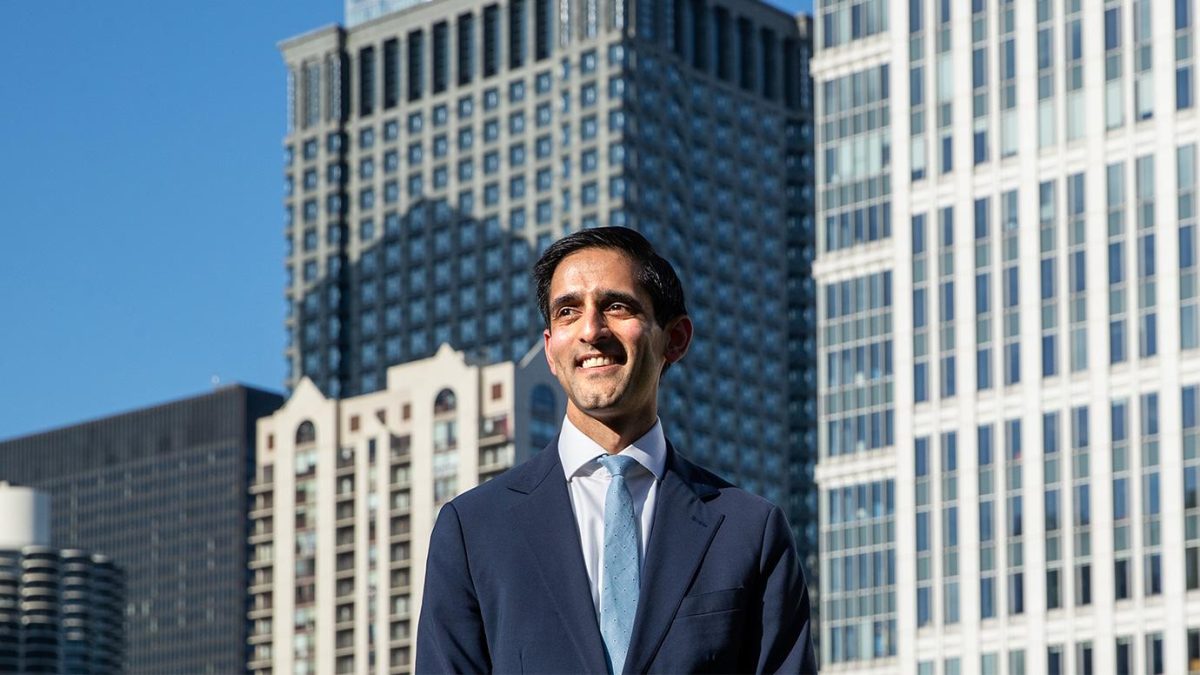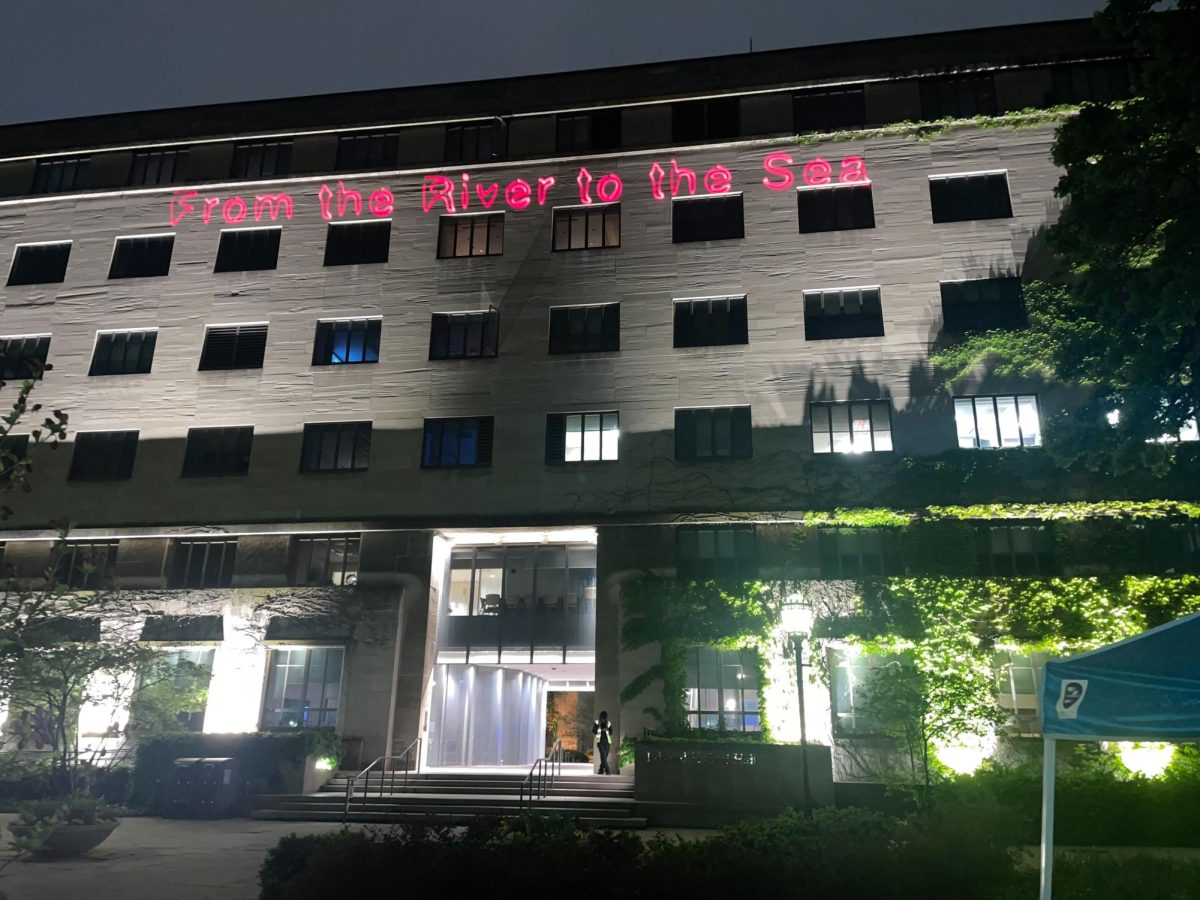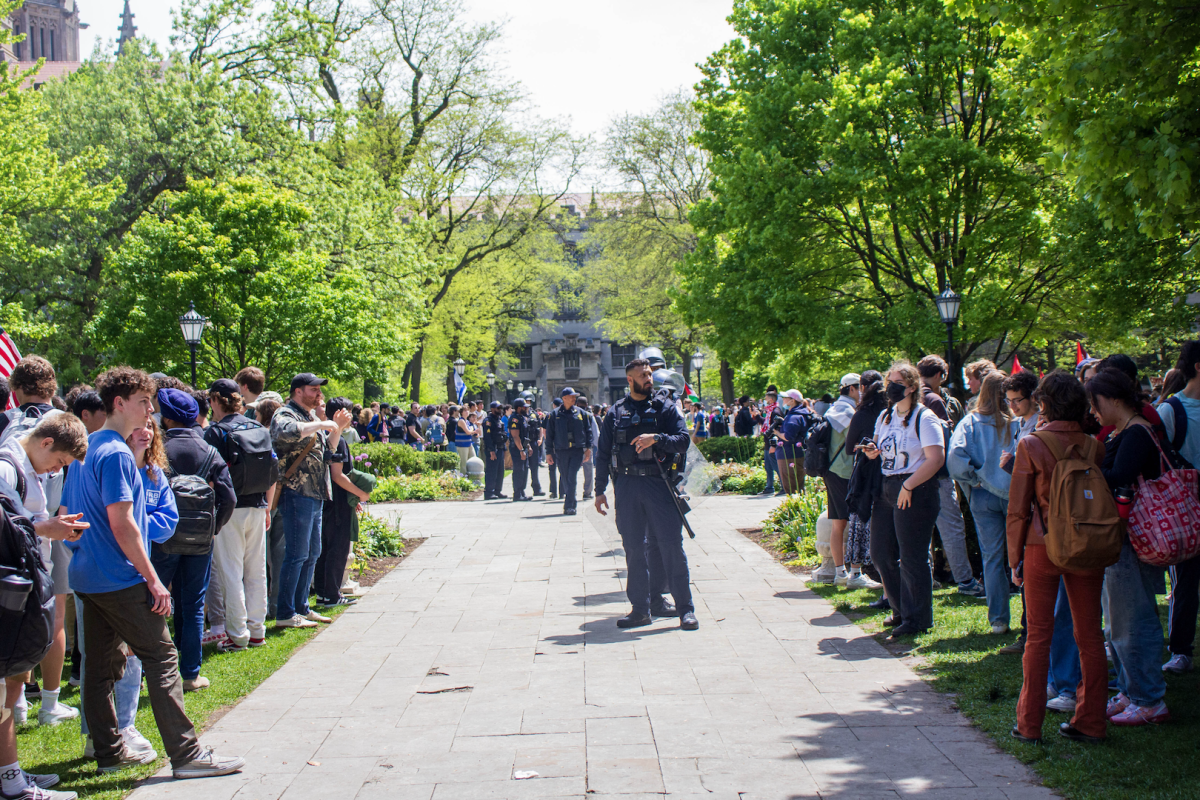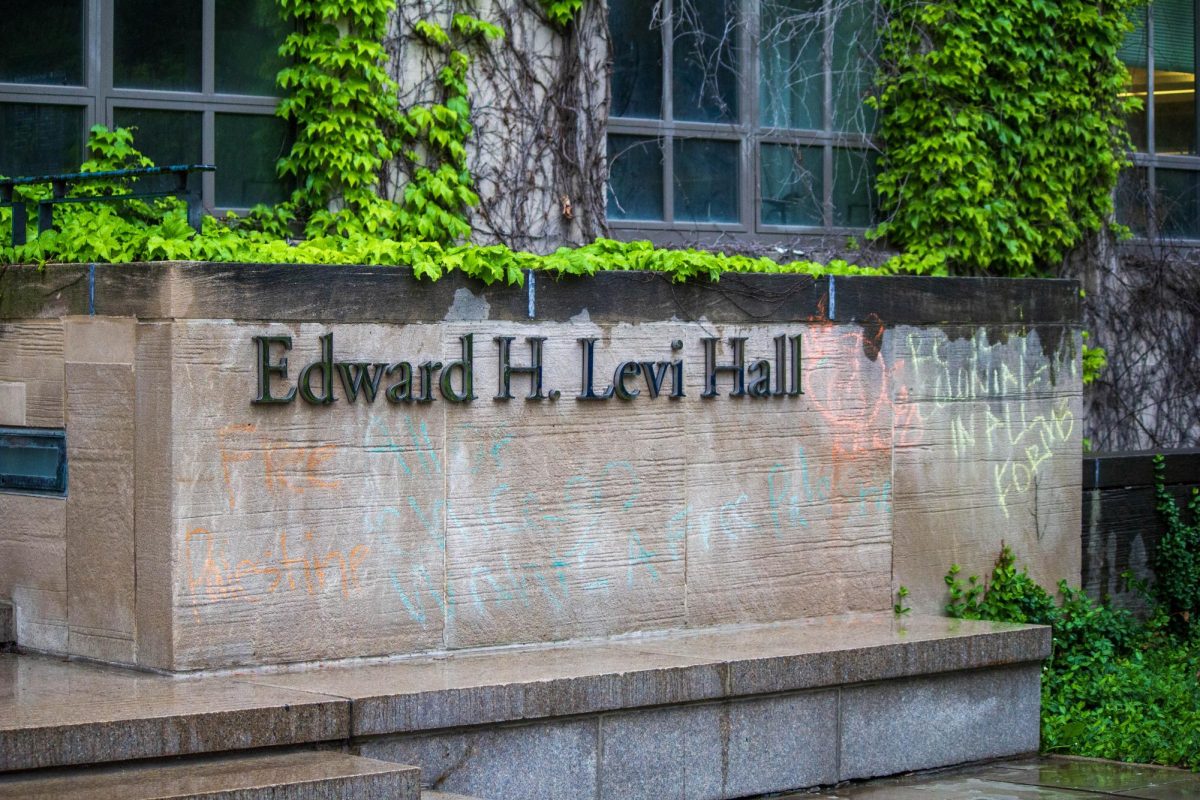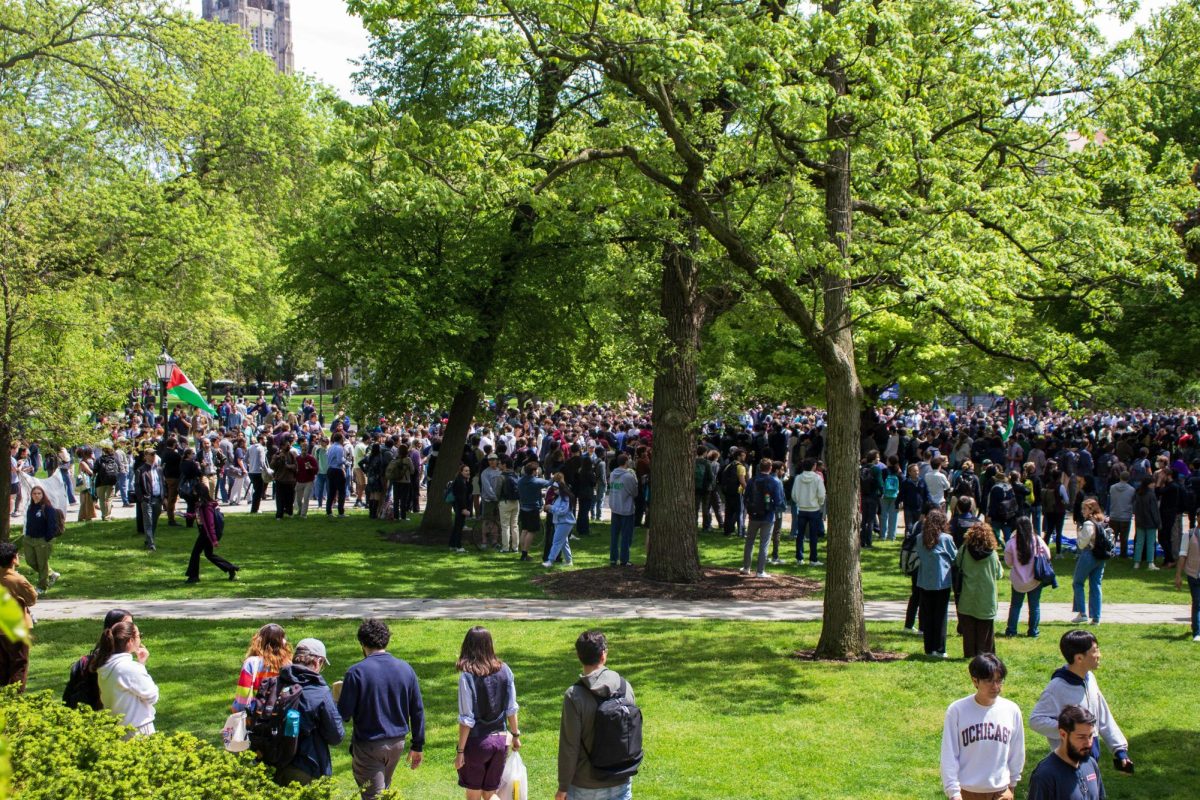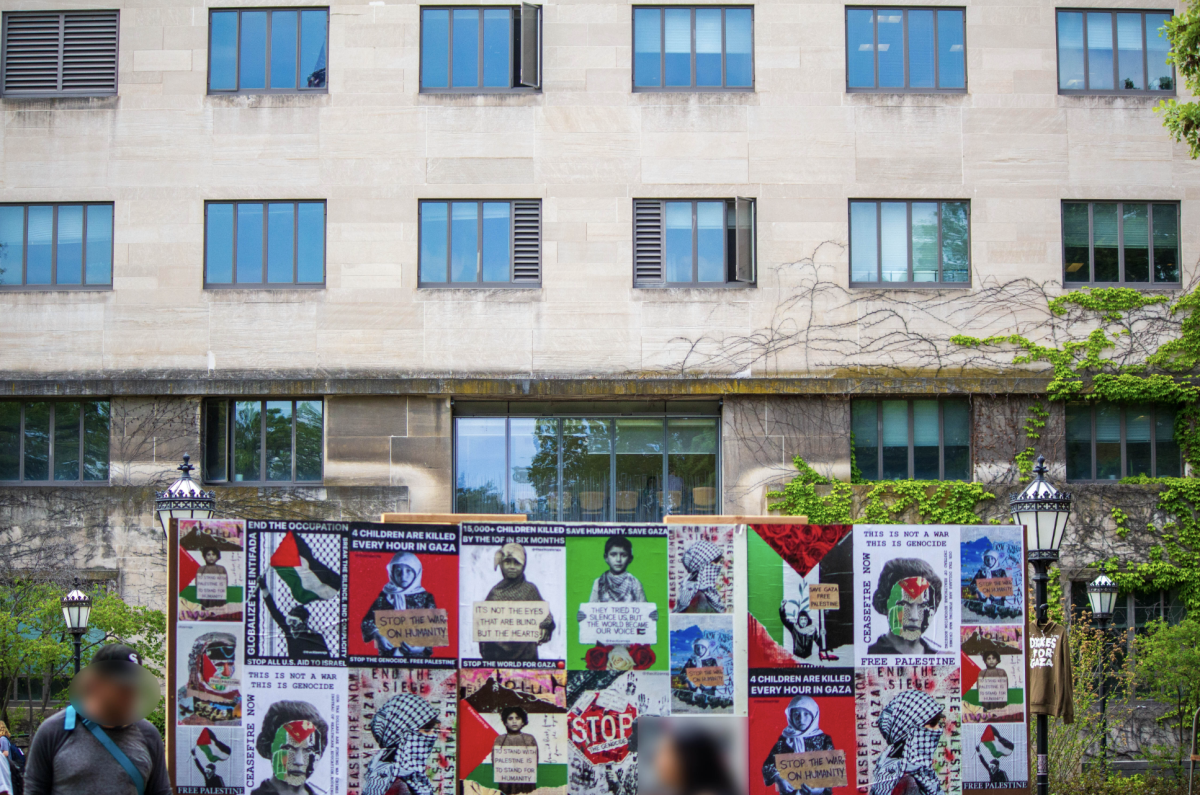Samir Mayekar took the reins as managing director of the University’s Polsky Center for Entrepreneurship and Innovation last month. Mayekar previously worked in the Obama administration as the director of national security personnel; served as the deputy mayor of Chicago for economic and neighborhood development under former Mayor Lori Lightfoot; and cofounded the NanoGraf Corporation, a renewable energy startup.
The 25-year-old Polsky Center, according to its website, operates a variety of programs promoting entrepreneurship and oversees commercial applications of UChicago research. University-affiliated researchers hoping to introduce new technology into the market apply for patents and licenses via the center, which reported $22 million in revenue last year.
“As head of the Polsky Center, Mayekar will play a pivotal role in advancing UChicago’s ambitious priorities in innovation, technology commercialization and entrepreneurship,” the University wrote in a press release announcing his appointment. “He will foster connections across the University, the city of Chicago, the region and the world that will enable the Polsky Center to accelerate the commercialization of critical technologies.”
In an interview with The Maroon, Mayekar praised the different arms of the Polsky Center and expressed excitement about how the Center’s work paralleled his own experiences.
“There’s this very interesting intersection of the Polsky Center’s work that’s very focused on the commercialization of science and student-based entrepreneurship, and also doing work in the community,” he said. “And that just so happens to be my background, from starting my own science-based company to doing my work as deputy mayor focusing on neighborhood investment.”
Mayekar identified four core functions of the center’s work: an entrepreneurship curriculum and programs at the Booth School of Business; its Tech Transfer Office, which manages commercialization of University research; various accelerator programs for startups; and initiatives helping small businesses on the South Side.
Mayekar said his work in the White House Presidential Personnel Office, which manages presidential appointments, at the beginning of Barack Obama’s term inspired him to enter the renewable energy industry. “One of the people I helped place was running the U.S. Development Finance Corporation, and she brought me in to be on her executive team,” he said. “What I learned there was how that organization did billions of dollars of financing clean energy projects all around the world. That’s what got me interested in clean energy.”
After serving as CEO at NanoGraf, Mayekar joined Lightfoot’s administration. “[My work was] really all about balancing economic development both downtown and in our neighborhoods, especially in neighborhoods that hadn’t seen investment for decades.” He helped develop the INVEST South/West initiative, which aimed to direct investment to 10 underserved neighborhoods on the South and West Sides. By early 2023, the program had resulted in more than $2.2 billion in public and private investment.
Mayekar’s time at City Hall also coincided with the COVID-19 pandemic, which he helped Chicago navigate. He viewed the city’s recovery as another point of pride for him.
Mayekar sees huge opportunities for scientific innovation in the near future. “There’s never been, certainly in our lifetimes, as much funding available for the commercialization of science,” he said, citing recent federal legislation including the Inflation Reduction Act, the Infrastructure Investment and Jobs Act, and the CHIPS Act.
“Here at the Polsky Center at UChicago, what has us excited is the advances and the companies that are going to be built in quantum and data science, in clean energy and life science. When you match the entrepreneurial talent that we have at the University with the fundamental research that’s happening here in the labs, with the type of funding that’s coming from the federal government, that will really catalyze more private sector investment.”
To Mayekar, the “commercialization of science” holds great potential—and the Polsky Center occupies a vital role in promoting it. “You think about some of the fundamentals that we have to deal with as a society around ethical and responsible AI. Inequality. How we tackle climate change,” he said. “All of these require breakthroughs in science-based innovation. That’s what universities do, especially what places like UChicago do. And that’s what our job is at the Polsky Center is: to really help build up that ecosystem so that innovation can have the impact that we all want to see in the world on those major issues of our time.”
He emphasized that those goals exist alongside the other mission areas of the Polsky Center, including revitalizing local business. “The South and West Sides in Chicago, they’ve seen disinvestment for far too long, for decades, and inequality is one of those fundamental issues that we as a society have to tackle,” he said.
“It doesn’t matter…if you’re running a small business that’s going to have a few locations or if you’re running a big data company or a science-based venture and you’re located here in the neighborhood. We’re going to help both those kinds of entrepreneurs, and we want them to be successful because they’ll create jobs, they’ll hire locally, and they’ll help catalyze that flywheel that we need to see happening with the local economy here on the South Side.”
He highlighted Hyde Park Labs, a new multipurpose science facility on Harper Avenue north of 53rd Street that is scheduled to open in late 2024, as an example of the new spaces that can help communities. He added that creating jobs on the South Side is another priority, noting that the soon-to-open Obama Presidential Center offers “a real swell of economic growth potential.”
Mayekar, a Northwestern graduate, highlighted other institutions in and around Chicago as potential partners. “Historically in Chicago, our big flagship institutions haven’t always found the right way to collaborate with each other. But recently, when places like Northwestern and UChicago and the University of Illinois system and others work together, that’s when you win things like the Chan Zuckerberg Biohub that has come to Chicago,” he said, referring to a new biomedical research center that combines the three universities’ resources. “I see that being a really positive force for all of us in Chicago.”
Mayekar’s short-term priorities include “making sure we are finding more capital to support our startup ecosystem and making sure that if you’re trying to build a company, that capital isn’t a barrier to you,” he said. “Number two is ensuring that entrepreneurs have the space they need to be successful.”


